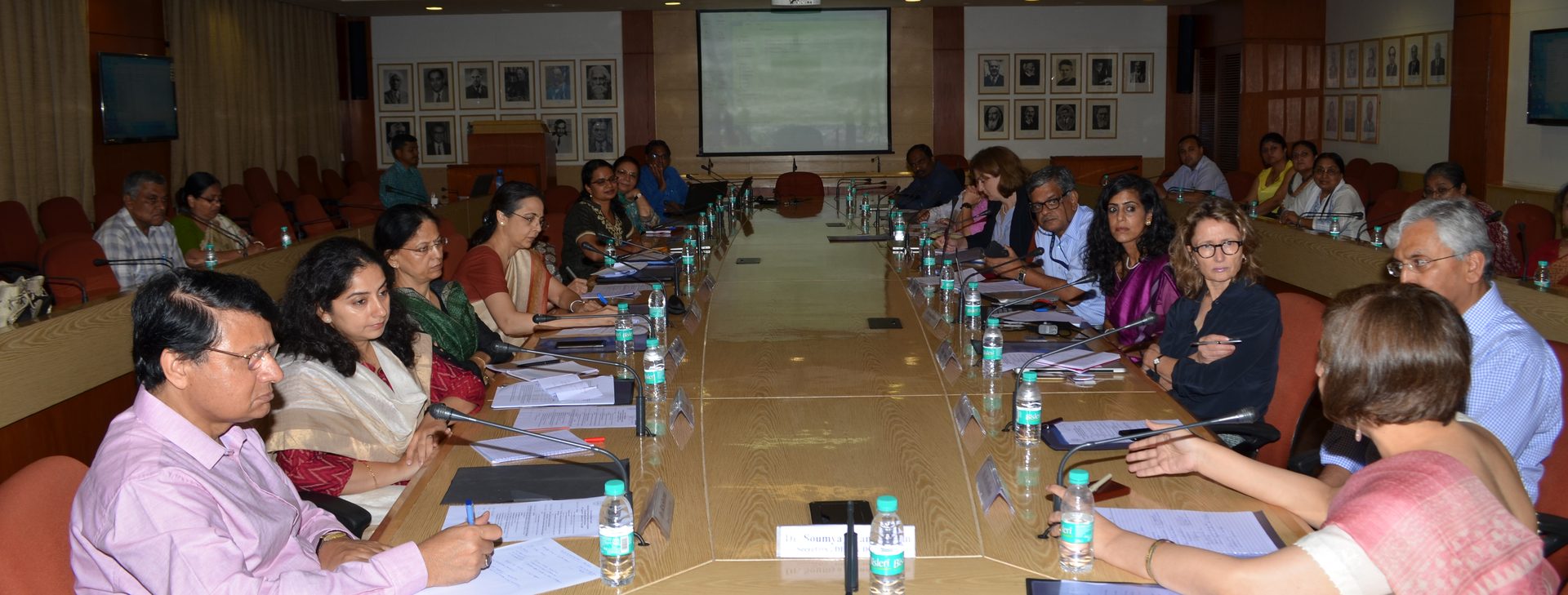
The future of women’s health: Using data and research to shape policy and programs
With the aim of initiating dialogue around various aspects of women’s health, The George Institute for Global Health along with the Indian Council of Medical Research organized a round table bringing together government representatives, researchers, academics, funding agencies and institutional bodies in New Delhi on August 10.
Second, in a series of discussions on women’s health, this roundtable focused on key challenges in the areas of data collection and analysis. The first gathering was held in March last year, where the aim was to collect the views of various stakeholders that can help document gender disparities in awareness, access, and quality-of-care, and finding biological, social, cultural and health system related explanations for these disparities. It also aimed at determining how best to improve the health of women and adolescent girls, and at identifying strategies to reshape the women's health agenda through a life course approach including prevention and management of non-communicable diseases and injuries.
Some of the challenges identified in the second round table were consideration of cost, asking the right questions, establishing mechanisms to collect the right data, finding the right tools to analyze the data, taking the time to analyze and report the data, and strengthening the evidence base for changing policy and practice around women’s health. The roundtable also addressed some very pertinent questions on the reasons for gaps in gender-based research.
Setting the tone for the discussion, Dr.R.S.Sharma, Deputy Director General, Indian Council for Medical Research said that the Sustainable Development Goals (SDG) adopted by India have brought the discussions around gender equality and women’s empowerment into mainstream narrative. New data is emerging that points to a major discrimination in the area of women’s health.
While non-communicable diseases (NCDs) like ischemic heart disease (known as heart attack), stroke, chronic respiratory diseases and diabetes claim the largest number of lives of women in India, the narrative around the health agenda for women remains limited to issues of sexual and reproductive health. NCDs were responsible for 60% of all deaths amongst women in 2013, up from 38% in 1990. Their contribution is about 40% in the 15-49 year age group, and >75% after the age of 50. Back and neck pain, depressive disorders, and respiratory diseases cause major disabilities among women in India.
Speaking at the roundtable, Dr Vivekanand Jha, Executive Director, The George Institute for Global Health, said:
“Women’s health research is still very much in its infancy. Women are still purposefully and systematically excluded from clinical research, and there is no appreciation of sex differences. Even when data is collected on both men and women, sex disaggregated analysis is never done, so women’s health conditions are not studied in a nuanced manner.”
Dr Robyn Norton, Principal Director of the George Institute in Sydney, said:
“Greater focus on women’s health is the need of the hour. There are gender differences in society, economics, and at the work place, besides of course in the family, which contribute to distinct health needs and varying health system uses.”
Dr Shalini Bharat from the Tata Institute of Social Sciences said that there was a real danger in how we conceptualize women’s health.
“We do not see women outside their marital roles. We need to unpack the construct of gender in research"
Speaking on the occasion, Dr.D.K.Shukla, Acting Director, National Institute of Medical Statistics (NIMS), ICMR, said while we talk about women’s health research, it would be important to first identify and list the areas where there are lacunae of information/data and indicators which would assess women’s health, progress, and achievement. This would not only assist towards collecting information in this regard, but also avoid duplication of efforts.
The roundtable brought forth some very important points of discussion such as the need to look at multi-dimensional aspects of women’s health while framing policies and programs. Also, the discussions threw light on the burden of mortality among women in India due to non-communicable diseases (NCD), which, over the years have emerged as the top killers of women in India – responsible for close to 60% of all deaths among women in 2013. Diseases such as ischemic heart disease, stroke, chronic respiratory diseases and diabetes form the top risk factors for women in India.
Some key observations and recommendations from the roundtable
- More focus is needed on understanding the burden of non-communicable diseases among women
- A gendered approach to health data and research is essential
- Building capacity to undertake women’s health research is required
- Gender discrimination in healthcare delivery needs to be concretely measured
- The missing data/ data gap on single, widowed and aged women needs to be tackled
- Role of men as well as close family members needs to be tracked to understand women’s health better
- There is a need to involve community in data collection
- Mental health is an area being ignored under women’s health
Gender-based research is therefore crucial to inform and strengthen the national health policy, and healthcare delivery under it.


